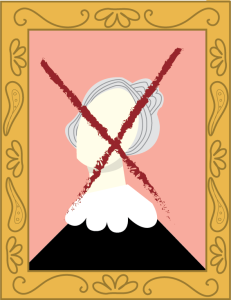Opinion: Domestic shutdown
January 30, 2021
There’s one thing that should be absolutely clear. There is no justification for the perpetrators of the raid’s actions on the Capitol on Jan. 6 –– they broke the law. The act shamed the image of this country and democracy as a whole. Those involved must be punished. The question of how these punishments should be dealt is a delicate one. The way we move forward now on domestic terrorism could have an impact on social justice.
Fortunately, the authorities have made numerous arrests, with several key members of the riot having been charged. The arrests are important to preserve “law and order” and prevent people from rioting every time their candidate loses. However, the methods behind many of the arrests are worrying and highlight future problems and could see worrying impacts in the future for more justified movements.
In the days after the riot, the FBI requested help from citizens to identify individuals pictured at the Capitol. Members of the public can contact the FBI and send media evidence through its website. Plenty of Twitter users jumped on the opportunity to bring these criminals to justice. Some women on the dating app Bumble used the chatting features to trick some of the rioters into sending incriminating evidence of themselves. An instagram account was created specifically to call out and shame rioters at the event.
This may at first seem innocuous, but a deeper look at the situation shows it’s hard to shake the totalitarian feeling of the whole thing –– neighbor ratting on neighbor. In this case, it’s a noble cause, but it only takes a couple steps in the wrong direction for this to be used to penalize innocent actions. That’s about as 1984 as you can get.
Picture a scenario in which the government decided that a movement like Black Lives Matter was not legal. All it would take was a screenshot of someone at the protest to get them arrested. This may seem like a disagreeable example, but we’re on a slippery slope. Never underestimate the government’s methods of cracking down on controversial events. Remember the Stonewall riots, the 1999 Seattle WTO riots, the 1967 Detroit riot, the walk on Birmingham. Civil disobedience is not inherently bad. These were all done for worthy and understandable causes. The decisions being made over this misguided attempt of rebellion could prevent anyone from speaking out.
In response to the Jan. 6 riot, President Joe Biden made it clear that he plans to tackle domestic terrorism and offered solutions like shifting departments’ focus more to domestic threats, cracking down on large social media companies that allow conspiracy posts and passing domestic terroism legislation. Some defense experts are even suggesting creating a new agency for modern domestic threats. It would not be the first time the country has used a terrible event to tighten its grip. For example, the Patriot Act, a set of laws aimed at preventing domestic terroism. These laws expanded the government’s ability to watch the public to a disturbing degree. They could look at business records, tap any device, and generally survey any civilian of suspicion.
The Senate has already proposed a bill that would distinguish domestic terroism from foreign terrorism. This would require the FBI, Homeland Security and the Department of Justice to shift their focus. The departments would be mandated to create a biannual report on domestic terroism and transition some of its offices to focus solely on domestic terrorist threats.
These propositions don’t seem so bad on the surface. However, remember that the designation of a domestic threat is vague and malleable. There are simple justifications to label movements and events as such. How hard would it be to label everyone involved in a movement as a “domestic terrorist”?
In response to talks of expanding domestic terrorism prevention, 135 human and civil rights groups, including the American Civil Liberities Union, have joined to oppose these new expansions. In a statement, the groups said, “We are concerned that a new federal domestic terrorism statute or list would adversely impact civil rights and — as our nation’s long and disturbing history of targeting Black Activists, Muslims, Arabs, and movements for social and racial justice has shown.”
There are plenty of examples in U.S. history of the government overstepping its bounds to shut down noble efforts that inconvenience them. Calls to crack down may be a massive shift that can perpetuate that kind of behavior.










